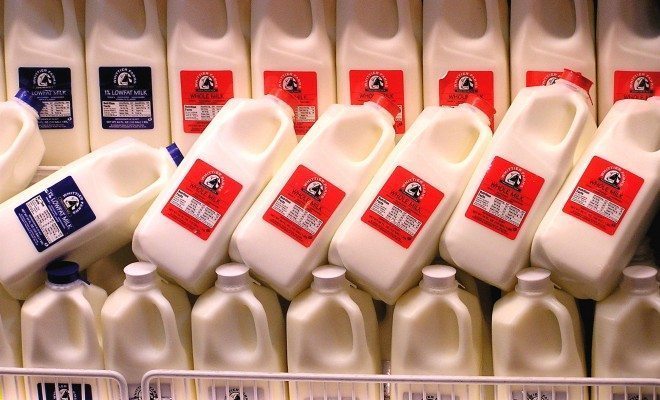 Image courtesy of [Liz West via Flickr]
Image courtesy of [Liz West via Flickr]
Schools
Harvard Law Documentary Uncovers the Truth About Expiration Dates
About once a week, I head to my local store to pick up some things that I’ll need for the week, including some milk. Milk is always one of those tricky purchases, because you have such a short amount of time to use all of it before it expires. Thats why, whenever I go to buy milk, the first thing I do is look at the “sell by” date printed on the carton. But if I were buying milk in Montana, this is something that I would not need to worry about. That’s because in Montana, there is a law stating that milk cannot be sold or donated 12 days after pasteurization. This unusually strict law has forced grocers across Montana to dump thousands of gallons of what most would consider perfectly good milk each week. It’s for this reason that a documentary film crew from Harvard Law School’s Food Law and Policy Clinic recently travelled to Missoula, Montana to get the inside scoop on the state’s milk law.
Montana has by far the stricted law in the United States governing the “sell by” date of milk, and is only one of two states to even have a law that has a requirement for the number of days that milk can sit on a retailer’s shelf. That other state is Pennsylvania, where milk is allowed to sit on shelves for 17 days. Other states either just require that a date is printed without actually specifying any guidelines for that date, or, do not have a law at all.
Harvard Food and Law Policy Clinic director Emily Broad Leib stated that “this has been part of a long-running interest of ours that’s around how we’re wasting so much of the food we produce in the U.S. We’re looking at how these laws–like the law we’re looking at in Montana–are the cause of that waste.” One of goals of the documentary crew to use this case to illustrate the issue of food waste and how food expiration and “sell by” dates contribute to that problem.
Emily Deddensm, a law student working on the documentary, explained that they “went through a bunch of big ideas throughout the semester and finally settled on this law in Montana, which requires milk to be thrown out 12 days after pasteurization” because they “just thought this is good because it’s such an extreme example of the bigger problem.” To them, this was a perfect example of food being thrown out and wasted far before it needs to be.
This Montana law was established in 1980 by the Montana Livestock Board, and despite people’s countless attempts to change it, has remained firmly in place since then. Since studies show that the milk is actually just as fresh after 28 days, the documentary team set out to try and figure out what consumers actually think that arbitrary “sell by” date means.
According to Broad Lieb:
This law makes no sense. It’s really bad for consumers. But even though Montana is the strictest on milk, other states are strict on other things. Again, it’s not just milk. With all of these foods, it’s a quality date. It’s when the manufacturer thinks you get the peak quality on that food. And yet, 90 percent of consumers think it’s about safety, and they throw perfectly good food away.
While being interviewed, Missoula grocer Jim Edwards explained that dairies are the ones that do not want this rule to change. That’s because it means that grocers like him have to buy more milk to fill up their shelves. In addition, it keeps milk prices higher in Montana than in surrounding states.
He also explained that this law makes no sense when actually considering how long it takes a gallon of milk to go bad. According to Edwards:
Little cartons of milk, they go bad quick. But they’re dated for 30 days or something like that. But the gallons never go bad. Half gallons go bad before gallons because anything in a bigger container will last longer. It’s just like wine. A great big huge bottle of wine will age better than a small bottle of wine.
Yet it is the larger gallons that have the sooner expiration dates while the smaller, half gallons have later dates.
According to the documentary crew, most people are unaware that they are throwing away perfectly good milk. Broad Lieb explained that “most people think that if they eat that food after the date, they are going to get sick.” From personal experience, I can say that this is something that I have thought–and have never chanced. I’ve always thrown away food or milk that has reached the date printed on the container.
This is why another goal of the documentary is to raise consumer awareness about the actual meanings of expiration and “sell by” dates. So far, they are already doing a decent job just by sharing information about the documentary. Next time I’ll think twice about throwing away my “spoiled” milk.








Comments